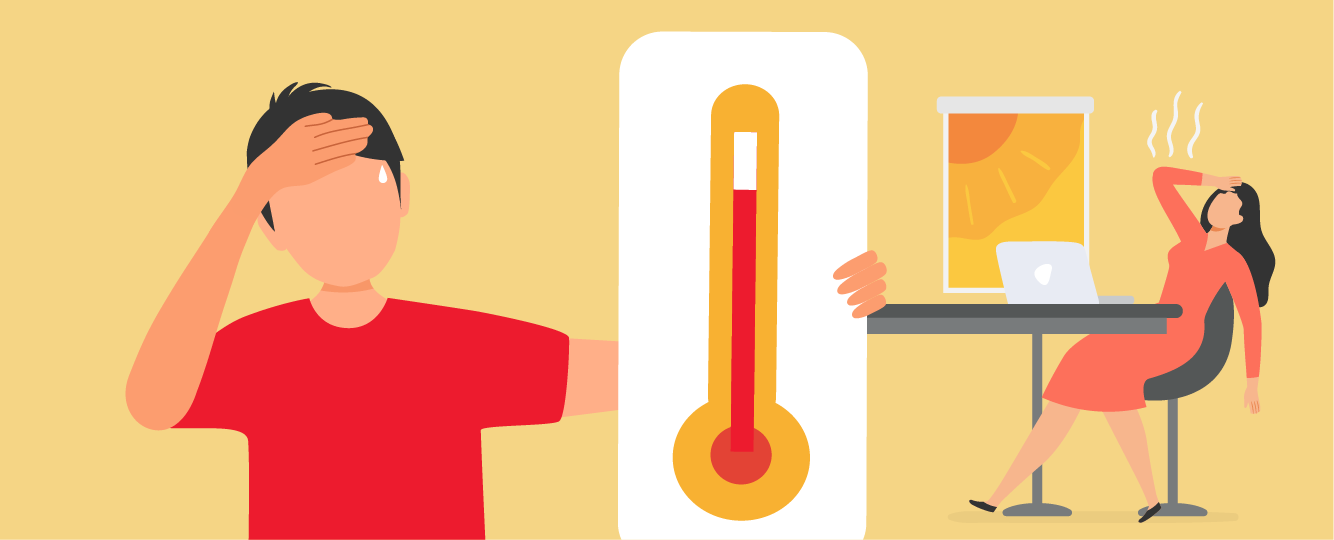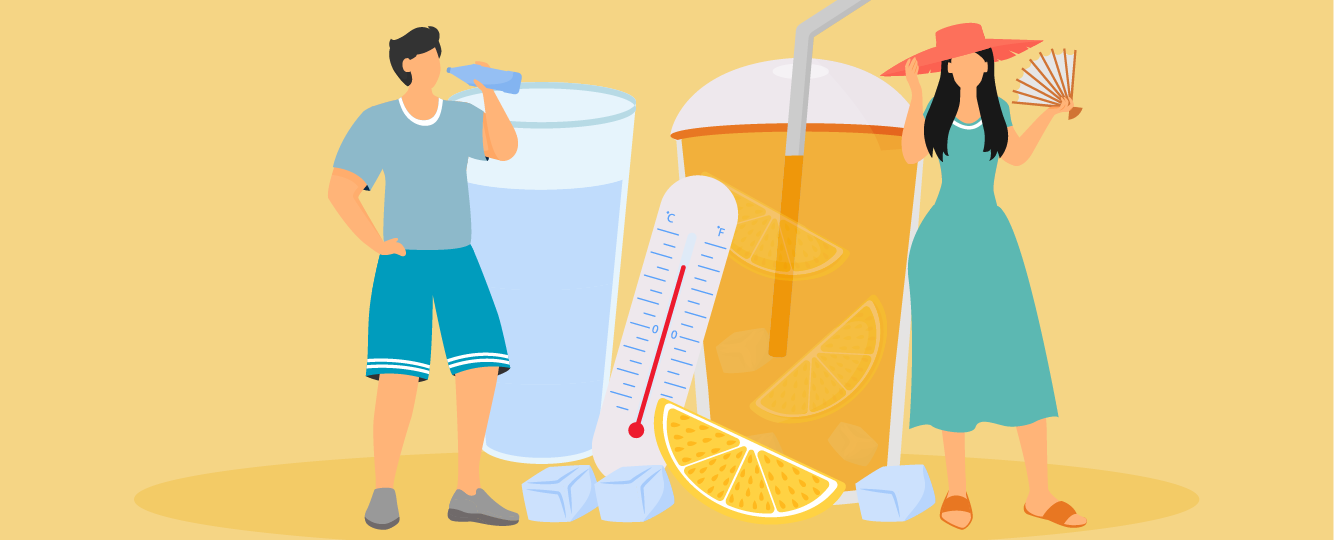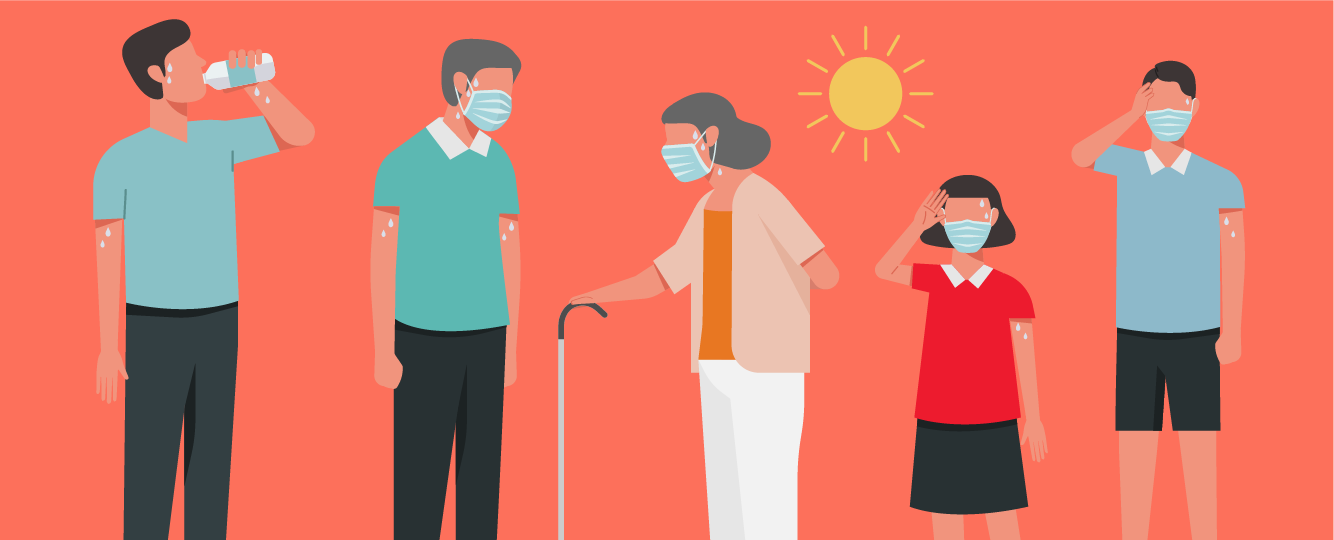
Climate Change:How to Stay Safe in the Heat
Written by: The Health Aisle Team
Medically Reviewed by: Dr. Aliya Kassamali, BSc. PharmD

Climate Change: How to Stay Safe in the Heat
With rising temperatures, days with extreme heat or heatwaves are becoming more common. This means temperatures reach higher than normal or dangerous levels. Extreme heat temperatures vary in different locations, depending on what is considered normal[1] [2].According to a 2019 Global Burden of Disease study, more than 356,000 deaths were related to heat, a number that is expected to grow as temperatures rise worldwide[2]. People must listen to public warnings and advisories and be aware of extreme temperatures.

Below are tips to help during extreme heat. It’s easy to remember heat safety in 3 buckets: stay cool, stay hydrated, and stay informed.
Stay cool[3][4]
-
Clothing: Choose lightweight, light-coloured, loose-fitting clothing. Wear a hat, sunglasses, and other coverings that can protect you from the sun.
-
Indoor temperature: Try to find a place with air conditioning if you don’t have air conditioning at home. Fans will not provide enough cooling for heat related illness. Take a bath or shower with cool water or apply cold towels.
-
Outdoor activities: If you need to go outside, plan activities during the coolest time of the day. This may be early morning or late night. Avoid exercising in the heat. Find a cool location if you feel dizzy, weak, faint, confused, or out of breath.
-
Sunscreen: Getting sunburn makes it harder for your body to cool down and can cause dehydration. Use sunscreen with a minimum sun protection factor (SPF) of 30 and apply it at least 15 minutes before going outside. Make sure to reapply every 2 hours or when needed.
-
Cooling food: Try to eat cooling food — like sweet fruit, raw vegetables, and cool drinks — so you are not adding heat to your body!

Stay hydrated in the heat[3][4]
-
Drink lots of fluids and don’t wait to drink until you’re thirsty.
Note: if you have a health condition that limits how much water you can drink, check with a healthcare professional on how much water you should have.
-
Avoid sugary, alcoholic drinks because they can be dehydrating.
-
Avoid very cold drinks because they can cause stomach cramps.
-
If you sweat a lot and lose a lot of body water, make sure to replace your electrolytes with a mineral or sports drink.
Stay informed[3][4]
-
Check for heat alert updates and be aware of where you can go to cool off.
-
Make sure you know about heat-related illnesses, like heat stroke, and how to treat them.
-
If you work in the heat, have a friend or someone who can check on you. Some heat-related illnesses can cause confusion or loss of consciousness.

References:
-
Institute for Health Metrics and Evaluation. (2021, September 20). The Lancet: Extreme heat is a clear and growing health issue, with evidence-based adaptation plans urgently needed to prevent unnecessary deaths. https://www.healthdata.org/news-release/lancet-news-release-non-optimal-temperature
-
Burkart, K. G., Brauer, M., Aravkin, A. Y., et al. (2021). Estimating the cause-specific relative risks of non-optimal temperature on daily mortality: a two-part modelling approach applied to the Global Burden of Disease Study. Lancet (London, England), 398(10301), 685–697. https://doi.org/10.1016/S0140-6736(21)01700-1
-
Centers for Disease Control and Prevention. (2017, June 19). Tips for Preventing Heat-Related Illness| CDC. https://www.cdc.gov/disasters/extremeheat/heattips.html
-
Ebi, K. L., Capon, A., Berry, P., et al. (2021). Hot weather and heat extremes: health risks. Lancet (London, England), 398(10301), 698–708. https://doi.org/10.1016/S0140-6736(21)01208-3
-
Centers for Disease Control and Prevention. (2017, June 19). About Extreme Heat – Natural Disasters and Severe Weather |CDC.https://www.cdc.gov/disasters/extremeheat/heat_guide.html
